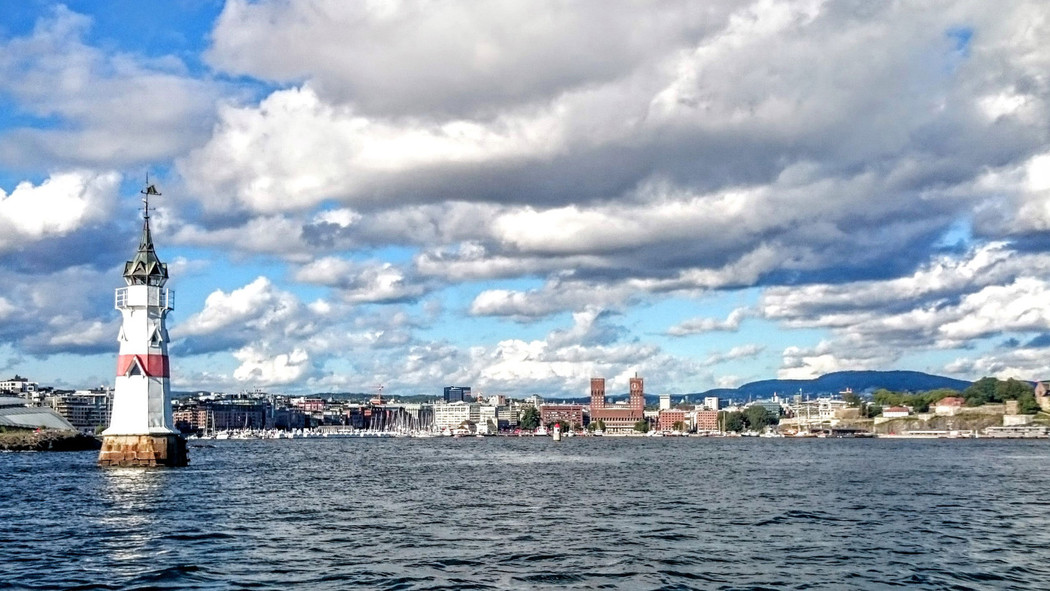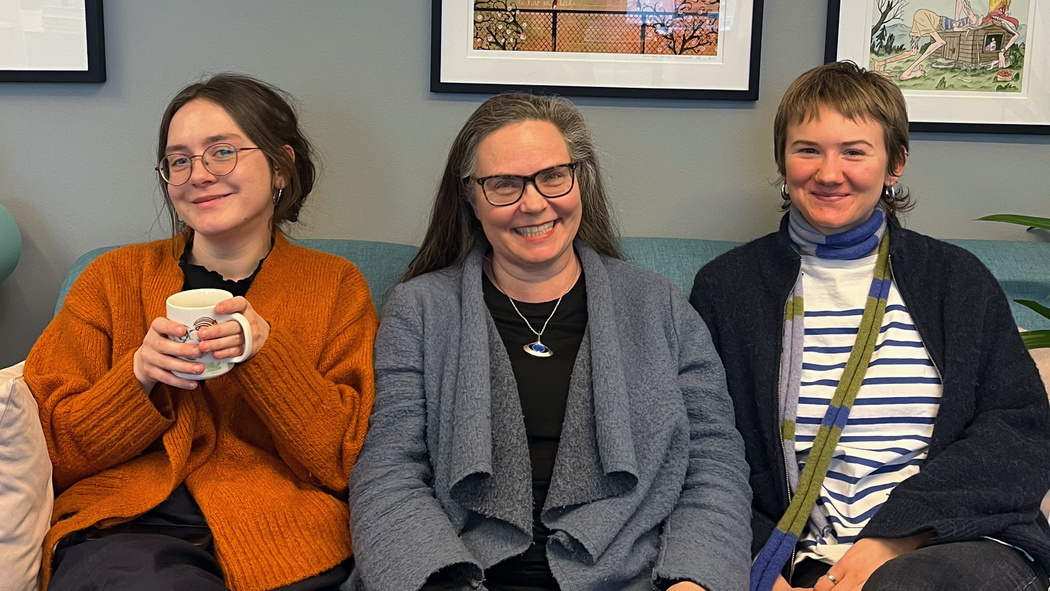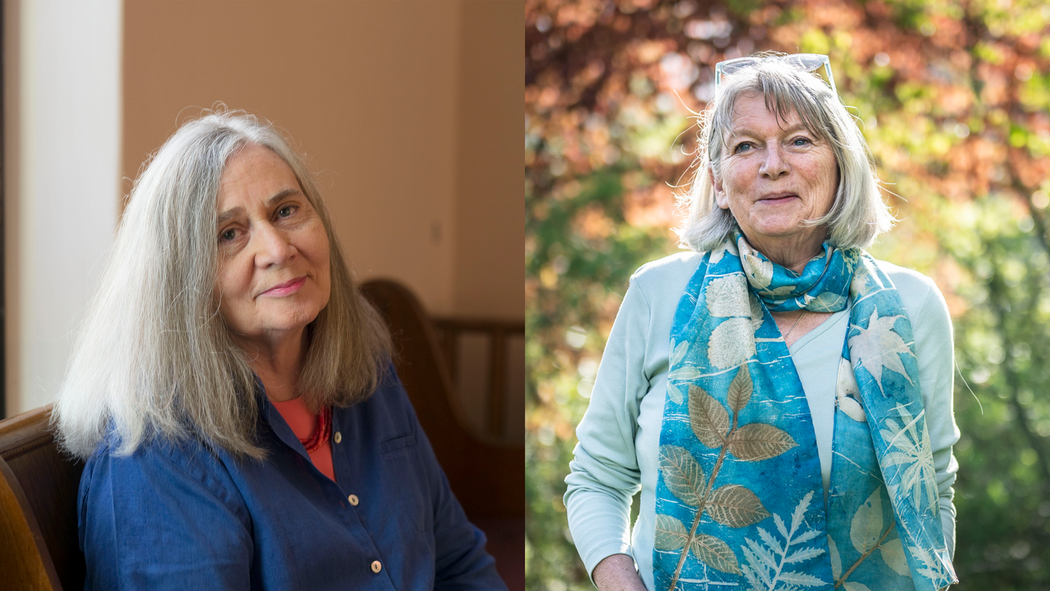Wendy H. Gabrielsen - Translator of the Month for February
Originally from London, Wendy H. Gabrielsen moved to Oslo after completing an MA in translation in 1987, and was lucky enough to translate her first two Norwegian books just two years later. After getting “sidetracked” teaching English for a couple of decades, she resigned from the French School in Oslo in 2020 and has since returned to translating and copy editing full time.
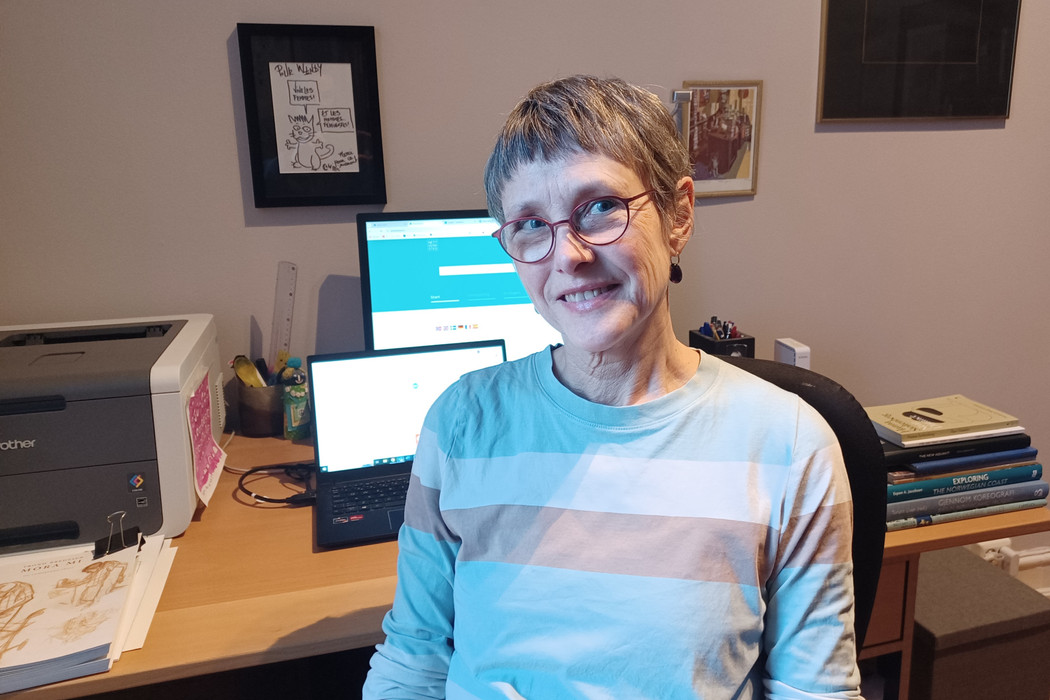
How did you end up translating Norwegian literature into English?
As a teenager my plan/dream was actually to translate novels from francophone Africa. I did a BA in French at the University of Bristol, which included a year in Lyon, but when I started an MA in translation at the University of Surrey I met a Norwegian doing the same course – and the rest is history! We moved to Oslo, I learnt Norwegian (rather more quickly than I learnt French), and through my husband’s contacts I soon got part-time work teaching translation at the university as well as my first book contract with Cappelen. This was in the run-up to the Lillehammer Olympics, so they wanted guidebooks in English about the local area. I often wonder how my career would have turned out if I had stuck with translation and not focused on teaching instead.
You received the “baton” from your French colleague Marie-Pierre Fiquet, who asked you this question:
«Hello Wendy! You translate both fiction and nonfiction. Do you find one more difficult than the other? Which do you prefer and why?»
It’s difficult to say! One of the most demanding books I have ever worked on was nonfiction – an anthology of texts about a contemporary dance company. The jargon used by dance critics can be quite mystifying, and I felt rather out of my comfort zone to begin with. However, the first novel I translated (The day that didn’t happen) was also very challenging because the language was so lyrical. I had to keep asking the author Gerd Kvanvig what she meant – and since she had written the novel over 20 years earlier, she couldn’t always remember!
I have actually done more nonfiction than fiction, and one thing I like about nonfiction is the range of subject matter. I also really enjoy doing the detective work/googling such books entail, but the downside is that I seem incapable of retaining any of the fascinating facts. Out of choice I would rather translate more fiction, I think, as novels lie closer to my heart. My first passion project was Hanna Stoltenberg’s Nada, which won the Tarjei Vesaas First Book Award in 2019. An excerpt from my translation was awarded the American-Scandinavian Foundation’s Wigeland Prize in 2022 for the best translation from Norwegian by a resident of Norway, and I successfully pitched the novel to Weatherglass Books soon after. It was published in the UK as Near Distance and included in the Guardian’s best recent translated fiction roundup in September 2023. All the positive feedback has certainly encouraged me to continue with this genre.
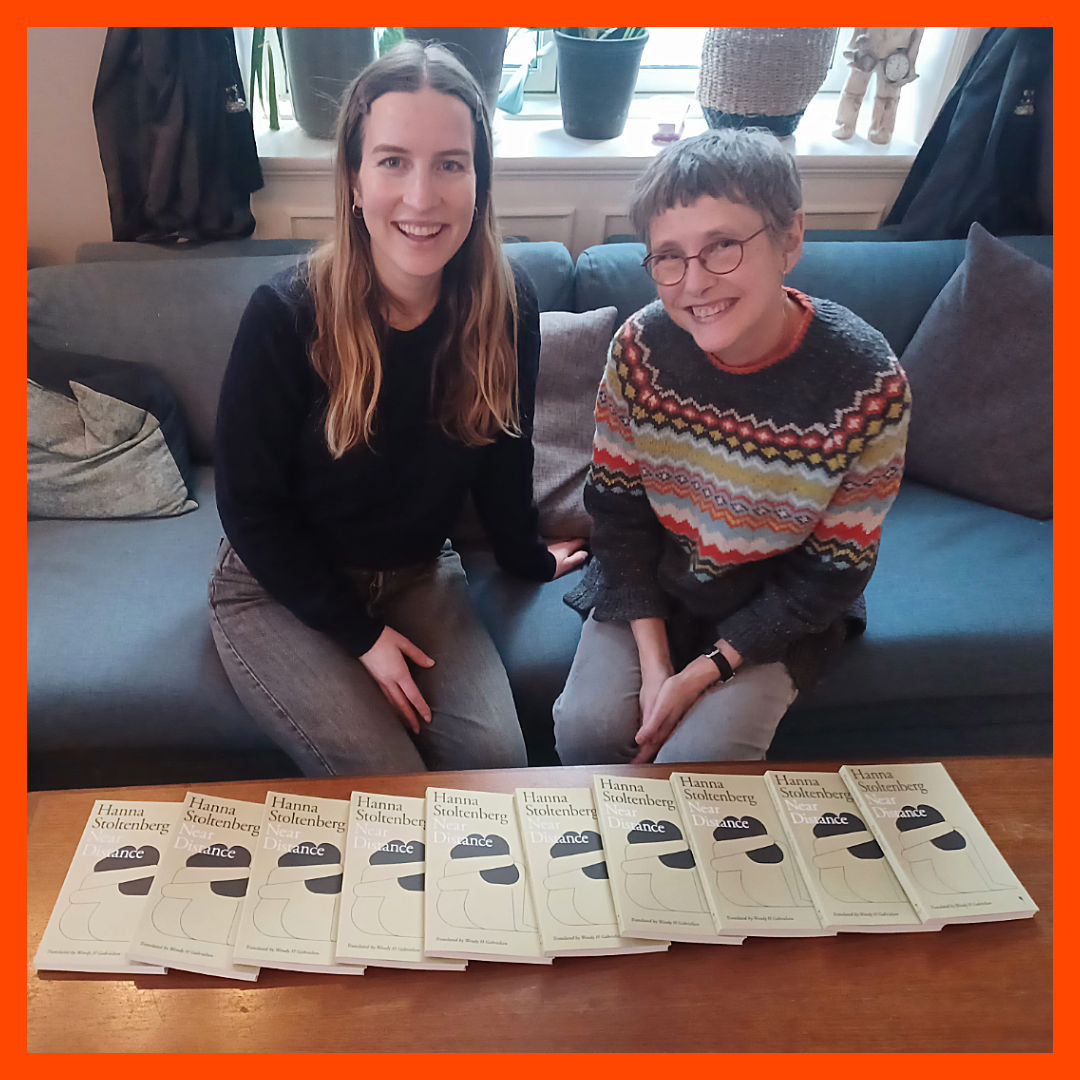
You are one of our regulars at NORLA’s online café (“pastry shop”) for translators, and we really appreciate that! We would like to welcome even more guests, so could you say something that would encourage other translators from Norwegian to join us?
I think I’m right in saying that the NORLA Zooms began during the pandemic, when translators were even more isolated than usual. It has been great to be part of a translation community online, keeping up to date with Norwegian literature at the same time. Our NORLA hosts are so knowledgeable and friendly. It’s fun, informative and useful – both professionally and socially. I still haven’t actually baked anything, but luckily no one ever asks …
Do you have a favourite word in Norwegian and/or a “nightmare word” – something that is impossible to translate?
Norwegian can be so graphic at times. I am both amused and repulsed by the word brystvorter, which describes nipples as breast warts! There are beautiful words too, of course, like silkeføre and tankespinn, which aren’t always easy to translate. Another favourite is snerk, although I hate what it means – the skin on hot chocolate…
Are there any British words/expressions that don’t really exist in Norwegian?
Despite our stiff upper lips, we Brits are rather fond of a bit of banter, which really has no equivalent in Norwegian. (My daughters have also suggested cringe and slay!)
Is there a particular Norwegian book that means a lot to you? If so, what is so special about it?
I am particularly attached to Vilde Fastvold’s debut novel Felt from 2020. It is instantly engaging, rather raunchy and set in Martinique, so the exotic setting also has a French flavour to it, which I like. I got funding from NORLA to make a presentation of the novel and an indie press in New York was interested enough to commission a reader report, but unfortunately nothing came of it in the end. My only consolation is that my sample translation (entitled Fieldwork) was published in the US literary journal Your Impossible Voice last spring and it has just been nominated for Deep Vellum’s anthology Best Literary Translations 2025. So I still hope that a publisher will pick it up one day!
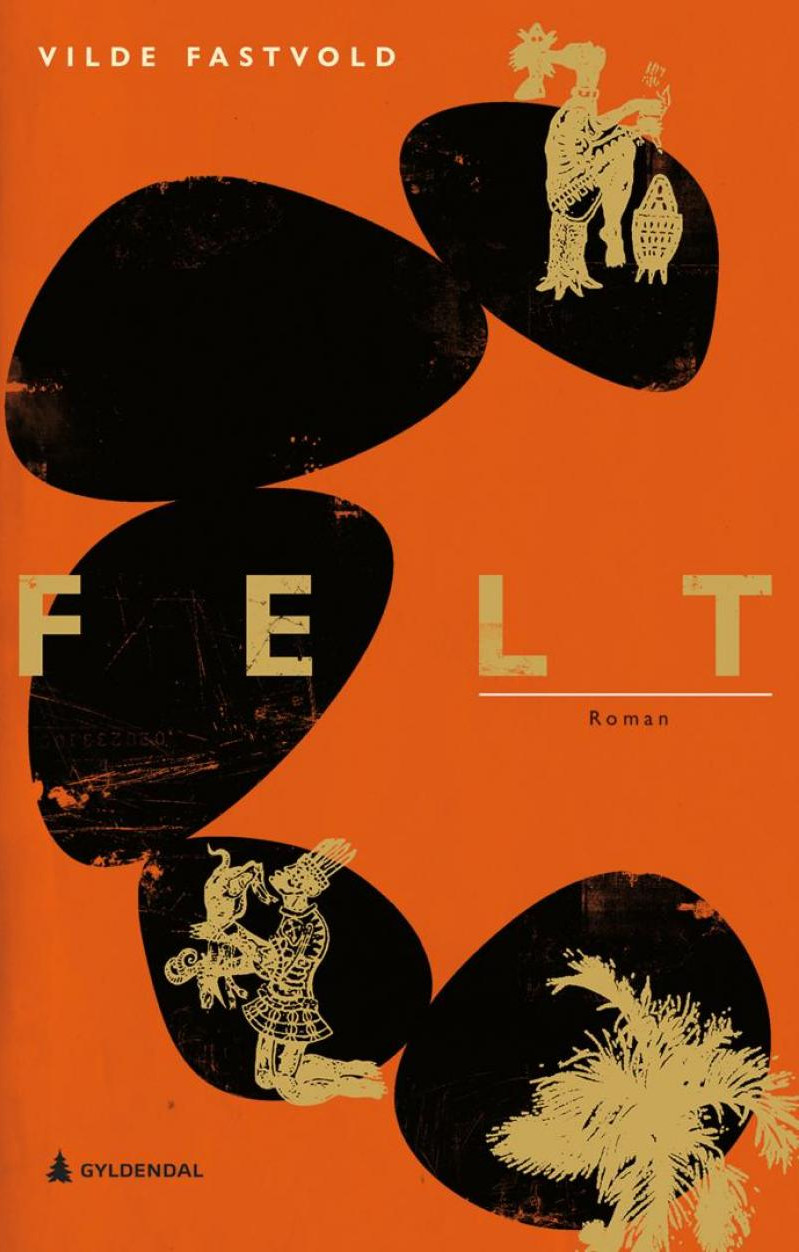
We hope you will pass the baton on to another of your colleagues who translates from Norwegian. Who would you like to pass it on to – and what question would you like to ask?
I would like to pass the baton on to Yang-Leng Liu.
«Hi Yang-Leng ! When we met last year at NORLA’s conference for translators, you told me that you had translated books by Knut Ove Knausgård and Jostein Gaarder. Are there any authors that are successful here in Norway who you don’t think would go down well in Taiwan?»
Read more
Learn more about Wendy on Books from Norway.
Those of you who understand Norwegian can read her interview in full here.
Other translators interviewed in the Translator of the Month series.
